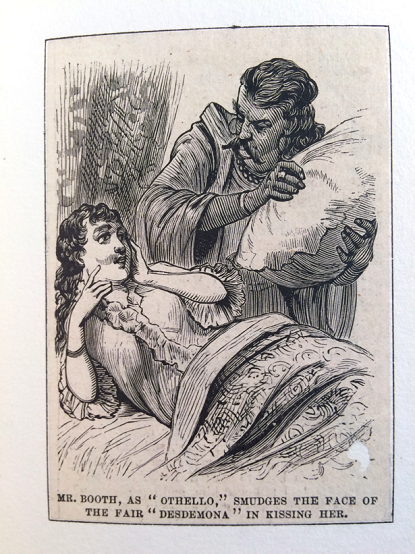"Seek you no color for your going": The Ends of Shakespeare's Dyeing Moors

Thursday 5 November 2020, 5.15PM
Speaker(s): Miles Grier (CUNY- The City University of New York)
In this talk, I will answer why so many moors in the plays and poetry of Shakespeare and his contemporaries find themselves delivering scrolls, reading pages, kissing paper, or incensed by it. While scholars have looked for these moors in dictionaries and on maps, I would argue that early modern stage moors are unlike persons of any ethnic group arrayed under that epithet. Early modern stage moors alone had the capacity to "dye upon a kiss," a trait made even more curious by how often their lovers are compared to paper. As black and white lovers came to personify ink and paper, blackface drama was able to explore the delight and the terror of playing out patriarchal fantasies that women's fidelity and children's paternity could be made as readable as a page.
Miles Grier is currently working on a book manuscript entitled Reading Black Characters: Atlantic Encounters with Othello 1604-1855. In this project, he follow Shakespeare’s blackamoor across two and half centuries of print and stage iterations, showing the play’s implication in a British-American project of producing legible gendered and racialized characters out of the strangers in a far-flung Atlantic economy. The project features performances of the play at Whitehall Palace in 1604, in front of Cherokee guests in colonial Virginia’s capital of Williamsburg, and before US diplomats in London in 1785. While paying attention to these historical performances, Miles is also interested in professional writers such as Aphra Behn and Herman Melville who rewrite Shakespeare’s plot—and the relationship between white writers and enslaved bodies—in attempts to overcome disadvantages of gender and postcolonial positioning. The temporal and geographic scope of this project, and its use of artistic sources, challenge the tendency to frame the history of race as a social concept entirely within the expert terms elaborated in law and science. In Reading Black Characters, law and science do not provide fixity to modern race in comparison to a fluid premodern counterpart. Rather, the type, number, and content of racial characters remains a matter of debate, and the traffic in racial essences remains alive and effective as a way of structuring social, political, and economic relations precisely because of this unsettled quality.
Miles has begun work on a second project that uses Joni Mitchell’s insistence that she is a black man trapped in a white woman’s body to consider the (changed and unchanged) relationship to authority and prestige white artists achieved in the wake of the black protests of the 1960s.
Register in advance for this seminar:
https://york-ac-uk.zoom.us/meeting/register/tJEoc-GvpzMuGtb9YcfMMaskVgvI_IJou2t2
After registering, you will receive a confirmation email containing information about joining the meeting.
When joining the meeting please mute your microphone upon entry, but you’re more than welcome to keep your camera on – we like to see you!
Location: Zoom
Email: crems-enquiries@york.ac.uk
